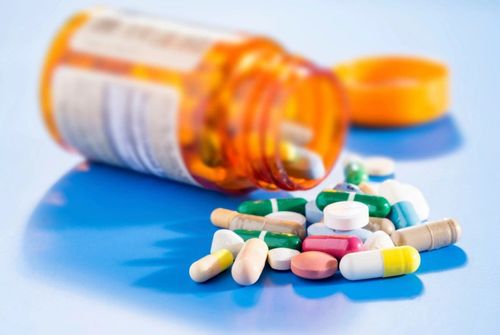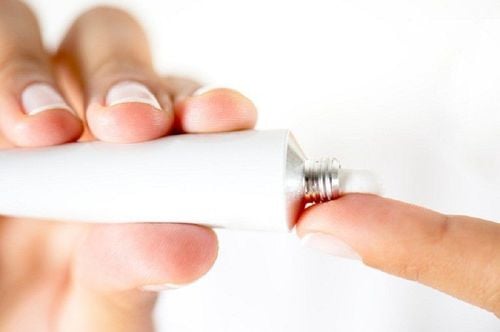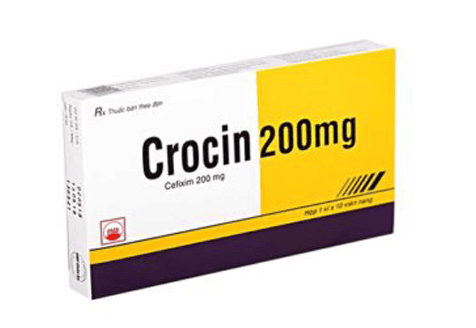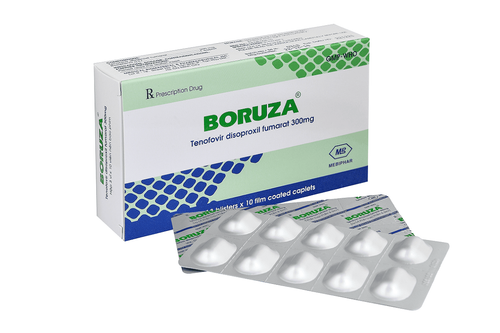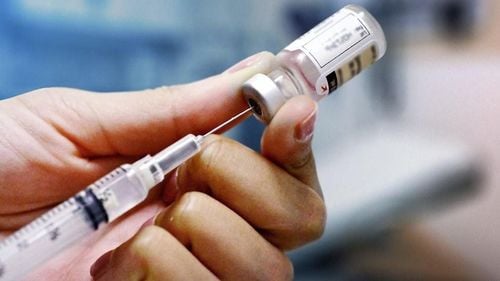This is an automatically translated article.
Dectixal has the main ingredient Cefuroxime Axetil, which belongs to the group of antifungal, antiviral, anti-infective, anti-parasitic drugs. The drug is effective in the treatment of diseases such as acute and chronic bronchitis, upper respiratory tract infections. So how should Dectixal be used?1. What are the uses of Dectixal?
Dectixal is prescribed by doctors to treat diseases such as:
Upper respiratory tract infections such as nasopharyngitis, otitis media, ear infections, pharyngitis, sinusitis, tonsillitis. Lower respiratory tract infections such as acute and chronic bronchitis, pneumonia Urogenital infections such as pyelonephritis, cystitis, urethritis. Treatment of skin and soft tissue infections such as boils, pustules, impetigo. Treatment of gonorrhea, uncomplicated acute urethritis caused by gonococcal disease Treatment of cervicitis.
2. Dosage and how to use Dectixal
2.1. Dosage The drug is prepared in the form of dispersible tablets, the composition Cefuroxim axetil is an acetoxymethyl ester for oral administration in the form of tablets or suspension. Patients can drink before or after meals.
The usual course of treatment lasts for 7 days or maybe longer depending on the condition.
2.2. Dosage For adults:
To treat bronchitis and pneumonia apply a dosage of 500mg x 2 times/day. For the treatment of infections apply a dosage of 250mg x 2 times/day. For the treatment of urinary tract infections, a dose of 125mg x 2 times/day is applied. For uncomplicated gonorrhea, a single dose of 1g is used. For children:
The usual dose is 125mg used twice a day or at a dose of 10mg/kg x 2 times/day. Maximum dose 250mg/day.
For children over 2 years old with otitis media, the dose is 250mg x 2 times/day or 15mg/kg x 2 times/day, up to a maximum of 500mg/day.
Note:
For patients with renal failure, impaired kidney function when using Dectixal, the dose should be reduced, due to the effect on the level of drug elimination by the kidneys.
3. Overdose and treatment methods
Manifestations of drug overdose: Most when the patient overdose, they will experience some symptoms such as nausea, vomiting, diarrhea. However, there have also been cases of neuromuscular hyperexcitability and convulsions, especially in patients with renal failure.
Treatment of overdose :
Usually the doctor will give some treatment measures such as:
Protect the patient's respiratory tract by supporting ventilation and administering fluids when needed. If seizures develop, the patient should immediately discontinue the drug and possibly institute anticonvulsant therapy if clinically indicated. Hemodialysis can remove drugs from the blood, but most treatment is supportive or symptomatic.
4. Side effects when taking Dectixal
Dectixal is a benign and quite safe drug, usually patients will rarely experience serious side effects when using the drug. However, the proportion of patients with adverse reactions such as nausea, vomiting, abdominal pain, eosinophilia, pseudomembranous colitis, and elevated liver enzymes still persists.
Usually these side effects go away when the drug is stopped, if the patient experiences other more serious symptoms, it is necessary to inform the doctor or pharmacist immediately if there is any suspicion of side effects. of the drug Dectixal.
5. Use Dectixal with caution
Be careful with patients with renal failure and patients with anaphylaxis to penicillin.
Do not use the drug with people who are sensitive or allergic to any of the ingredients in the drug.
Use caution with patients with diseases of the gastrointestinal tract, especially colitis.
Some subjects need to be aware of before taking Dectixal, need to consult a doctor such as the elderly, pregnant women, lactating women, children under 15 years old, people with liver failure... Or the subject has myasthenia gravis, hepatic coma, gastric ulcer
6. Dectixal drug interactions
Drug interactions can cause unwanted side effects or reduce the effectiveness of the drug, so patients should note before using the drug, need to tell the doctor or pharmacist about the medicine they are taking. such as prescription drugs, over-the-counter drugs, and functional foods.
Probenecid: When administered with or immediately prior to administration with Dectixal, Probenecid may slow tubular secretion of Dectixal and produce higher serum concentrations of Dectixal. However, the interaction between these two drugs is often used beneficially in the treatment of gonorrhea. Aminoglycoside: Combined with decixal increases the risk of nephrotoxicity. Therefore, patients should regularly monitor renal function when these drugs are taken together Diuretics: Studies have shown that concomitant use of potent diuretics, including furosemide and ethacrynic acid, can increased risk of nephrotoxicity with cephalosporins. Antacids: Affects the absorption of Dectixal into the body. Oral contraceptives: Like other antibacterial agents Dectixal can affect the intestinal microflora, leading to estrogen reabsorption and decreased effectiveness of oral contraceptives. Effects on Test Results: Drugs that may cause a false-positive reaction for glucose in the urine may occur with copper reduction tests (Benedict or Fehling's solution, or with Clinitest tablets. The above are for information). Important information about Dectixal if in the process of using the patient have any problems, they should contact their doctor for specific advice and answers.
Please dial HOTLINE for more information or register for an appointment HERE. Download MyVinmec app to make appointments faster and to manage your bookings easily.




